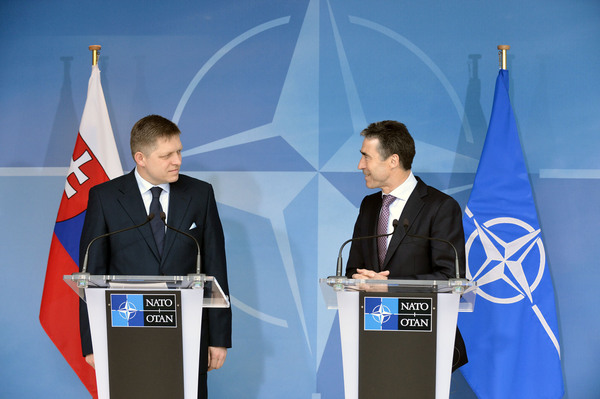With two out of every three insurgents fighting for the Islamic State of Iraq and the Levant (ISIL) identifying as foreign born, governments around the world are on high alert against the threat of homegrown terrorism, as thousands of radicalized Western citizens return from waging jihad in Syria and Iraq.
In the United Kingdom alone, the overall number of terrorism and suspected-terrorism related arrests has increased fivefold since last year. In response to a growing number of citizens (approximately 500) fleeing the country to join ISIL and other militant groups in the region, the UK has raised its threat level to “severe”. Elsewhere in Europe, France, Belgium, and Denmark have exported record numbers of citizens to join militant groups abroad. The United States faces a similar, albeit less drastic threat, according to top White House officials, while Canada’s RCMP is investigating dozens of Canadians with similar connections to overseas militant activity. Overall, it is estimated that since May, approximately 12,000 foreign fighters, some 3000 from Western nations, have traveled to fight alongside ISIS. Thousands more are believed to have arrived since the delcaration of the Islamic State on June 29th, 2014.

How should Western democracies tackle the threat of this growing “Fifth Column”? What are the effective approaches of government policymakers?
The UK Parliament has put forward new measures to seize the passports of those suspected of traveling for malicious purposes, and to implement new Terrorism Prevention and Investigation Measures (TPIMs) to restrict the movement of suspects. Airlines must also comply with no-fly lists and share passenger information with police authorities. Other more controversial policies have been proposed, including the stripping of citizenship from known jihadists, and a legal presumption of guilt for suspects. Yet these reactionary policy suggestions have been widely criticized as “draconian” and ineffective by top counter-terrorism officials, including Richard Barrett, former head of MI5 and MI6.
So what exactly do the experts have to say on counter-terrorism, and what alternative policies do they propose? Counter-terrorism research has long revealed that poverty and a lack of education are not linked to terrorism. Nor is religious piety. Motivations behind terrorist attacks can be found in ideological worldviews or else built upon political feelings of real or perceived grievances. Amongst homegrown terrorists, reasons are more complex, with personal disillusionment, and even boredom playing crucial roles in influencing youth.

Anti-radicalization programs with a focus on social service and psychological components are likely to be more effective. The UK’s Channel program, designed to identify and respond to populations deemed by the program to be sympathetic to extremist ideas, could be extended to encompass all citizens returning from conflict regions in the Middle East. Contrary to popular imagination, research indicates that government-supported religious or community leaders are unlikely to diffuse already-radicalized or at-risk populations, who interpret these leaders as “takfir”—corrupted apostates.
More effective are those members of radical groups who have since recanted their prior extremism. Governments across Southeast Asia, such as Malaysia, Singapore, and Indonesia have recognized and adopted this approach, recruiting former members of the Jemaah Islamiyah terrorist group to speak out against violence. Some have suggested using a similar approach within the UK’s Channel program.
There is of course another action that NATO powers must seriously consider—one that extends far beyond the collaborative efforts of counter-terrorism networks. While there are many conflicting motivations behind ISIL activities, there can be no doubt that a key-mobilizing factor is the potential for regime change in Syria. Used as an instrument of recruitment, shocking images and stories capturing the atrocities committed by the Assad regime, which now amount to almost 190,000 deaths and almost 3 million displaced refugees, have been exploited by ISIL to justify its actions and worldview.

Weeks ago, expert strategists called again for a deployment of NATO Special Forces within both Syria and Iraq, and alongside Turkish borders. These suggestions were mistakenly dismissed, substituted instead with targeted airstrikes in Iraq. Pentagon strategists are once again forewarning that such limited measures are unlikely to be effective in the long run. At the recently concluded NATO Wales Summit, US secretary of state John Kerry called for a coalition of 10 countries to combat the ISIL threat, yet there was little talk of an effective military strategy beyond continued airstrikes.
As the Sunni-Shia civil war threatens to expand into the neighboring territories of Lebanon, Egypt and Israel, NATO countries must give serious credence to a broader regional approach which takes the fight against the “Fifth Column” not only to Iraq, but also to the root of regional instability in Damascus.




